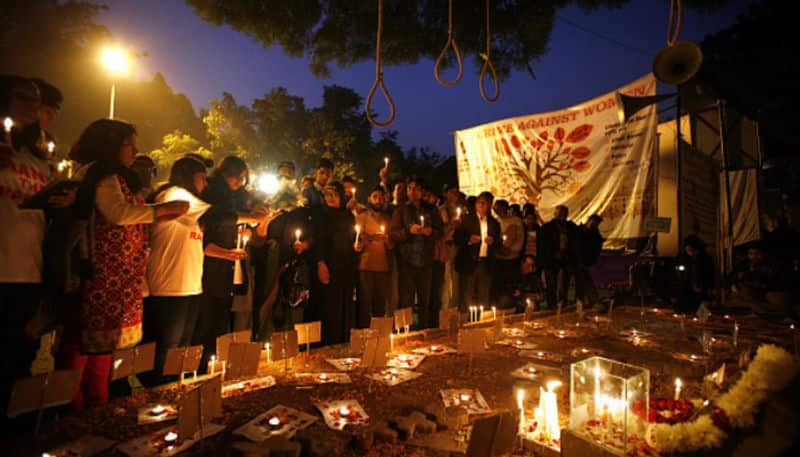This year, the city has seen an increase in the number of rape cases compared to that of last year. According to data, on an average, six women face sexual assault every day in the National Capital. This means that every four hours, one woman files a complaint against rape in Delhi
New Delhi: The national capital, which saw one of the most gruesome crimes in 2012 the nation has witnessed when 23-year-old ‘Nirbhaya’ was gang-raped and killed by six men, is still awaiting some major changes in the law that can curb crimes against women.
The Delhi Police, whose investigation sent all convicts involved in the gang rape to jail, is now waiting for their death penalty.
What has (not) changed in Delhi can be judged by the fact that after the Nirbhaya incident, the city has witnessed 12,285 incidents of rape. However, Delhi Police data claims that there is a dip of 5% in crimes against women since January of 2013 till November 30, 2018.
This year, the city has seen an increase in the number of rape cases compared to that of last year. According to data, on an average, six women face sexual assault every day in the National Capital. This means that every four hours, one woman files a complaint against rape in Delhi.
There are a lot of cases which do not get the national attention that Nirbhaya’s got. In one such instance, a five-year-old who suffered the same fate as that of Nirbhaya just four months after the 2012 incident, is still awaiting justice.
According to the family, when the incident took place, all senior Congress leaders visited their house; but even after five years, they are yet to get justice. The accused, just like in Nirbhaya’s case, tortured the victim by inserting foreign objects into her private parts.
Apart from rape, incidents of molestation and eve-teasing have also seen an upward trend. According to the data compiled by the Delhi Police, till November 30, 3,066 women were molested in the city. On an average, in every five hours, two women face molestation in the capital.
From poor to worst conviction rate
While the Delhi Police boasts of solving rapes cases with a success rate of more than 90%, the reality is that the conviction rate in such cases is consistently falling. Home minister Rajnath Singh expressed his concerns over the poor conviction rate of the Delhi Police this year. While comparing the conviction rate of the Delhi Police with other metropolitan cities, Singh asked the Delhi Police chief to take steps to strengthen the investigative wing of the force. According to data compiled by the MHA, the Delhi Police have a conviction rate that has varied from 26% to 34% in past six years. It means that out of 12,000 cases, there has been no conviction in 8,000 cases. The situation is so bad that the Delhi Police, which used to have one of the best conviction rates across India, is now competing with states like Bihar, Assam, West Bengal, etc.

Nirbhaya fund
Just after the Nirbhaya gang rape incident, the UPA-led government announced a ‘Nirbhaya fund’ which would work for the safety of women. State governments were asked to submit proposals which can pool in for the Nirbhaya fund. But even then, many proposals whose funds have been apprised by the Empowered Committee (EC), have not gotten a single penny as the funds have not been released. Proposals like the Creation of Investigative Units for Crime against Women (IUCAW), Organised Crime Investigative Agency (OCIA), Safe City Proposal for eight cities- Delhi, Kolkata, Mumbai, Chennai, Hyderabad, Bengaluru, Ahmedabad and Lucknow have not received any fund. The EC has approved a total of 3,400 crores for these projects.
What happened to fast track courts?
After the Nirbhaya incident, the government promised to fast track trials of crimes against women by opening Fast Track Special Courts (FTSCs). But still the project is under process. Recently, the Ministry of Women and Child Development said in the Parliament that Rs 474 crore has been released from Nirbhaya funds for the project. The government has appraised the project of setting up of 1,023 FTSCs at a total financial implication of Rs 767.25 crore to dispose of cases pending trial under rape and POCSO Act across the country. During the first phase, 774 FTSCs were proposed to be set up in nine states (Uttar Pradesh, Maharashtra, West Bengal, Madhya Pradesh, Kerala, Bihar, Andhra Pradesh/ Telangana, Gujarat and Karnataka) at a total central support of Rs 349.65 crore.
Last Updated Dec 16, 2018, 4:22 PM IST











![Salman Khan sets stage on fire for Anant Ambani, Radhika Merchant pre-wedding festivities [WATCH] ATG](https://static-ai.asianetnews.com/images/01hr1hh8y86gvb4kbqgnyhc0w0/whatsapp-image-2024-03-03-at-12-24-37-pm_100x60xt.jpg)
![Pregnant Deepika Padukone dances with Ranveer Singh at Anant Ambani, Radhika Merchant pre-wedding bash [WATCH] ATG](https://static-ai.asianetnews.com/images/01hr1ffyd3nzqzgm6ba0k87vr8/whatsapp-image-2024-03-03-at-11-45-35-am_100x60xt.jpg)



